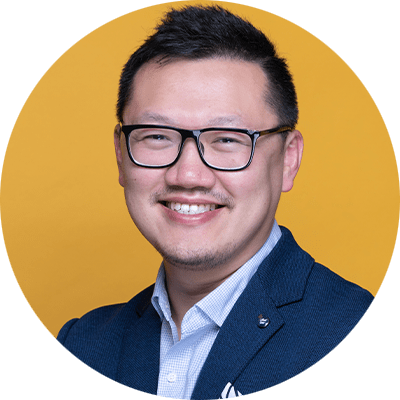Hello my friend in desktop mode.
Hello my friend in desktop mode.
Hello again my friend in desktop mode.
Hello again friend in mobile mode.
Surviving cancer is a feat, but what happens afterwards? Research by the Flinders Caring Futures Institute is boosting cancer care.
Right now in Australia there are over 1.1 million cancer survivors – enough people to fill the seats at Adelaide Oval twenty times over. That’s a remarkable result in anyone’s language.
However, while the immediate risk of cancer is lowered by new and effective treatments, all these survivors still have complex health needs.
Matthew Flinders Professor of Cancer Nursing Raymond Chan runs a comprehensive and targeted program of research that supports the overarching health of patients who survive breast, prostate, blood and other types of cancer.
“Even when survivors may be described as cancer-free, many health challenges remain as a result of physical and psychosocial impacts of diagnosis and treatment,” says the much-awarded cancer care specialist. “My work is about improving the care, experiences and health outcomes for people living with cancer.”
Health changes that can result from cancer and treatments are diverse – pain, fatigue, physical disability, lowered cognition, memory loss, sexual dysfunction, cardiovascular issues and immunosuppression – and so Professor Chan’s research team is multidisciplinary. He admits his ambition to create positive change is high.
“As long as research has a chance of improving patient outcomes, we will focus on it,” he says.
One of Professor Chan’s core projects offers a care option for patients once they have completed the acute phase of any treatment – and he’s identified General Practitioners as playing a key role.
“When oncologists treat cancer patients it can involve exposing them to some pretty toxic treatments, such as chemotherapy and radiotherapy,” he says. “When patients are sent back into the real world but still suffer side effects, GPs are well positioned to help them manage and refer them to additional services such as physiotherapy, or nutritional support, or psychologists, or whatever else they need.”
Working within the structure of Australia’s existing public health system, Professor Chan has attracted funding from the National Health and Medical Research Council and the Medical Research Future Fund to establish and trial his programs. The model involves patients getting the best of both worlds — the acute cancer team and their general practitioners — to ensure their holistic needs are met. The approach was initially set up for breast cancer survivors but is now being expanded to include other types of cancer as well.
“As long as research has a chance of improving patient outcomes, we will focus on it,”
“For breast cancer, we worked with the McGrath Foundation across seven Australian sites to ensure that GPs and cancer care nurses deliver effective care for patients once their cancer treatment is completed,” Professor Chan says. “We’re now starting similar work for patients who have been treated for prostate cancer and lymphoma (a blood cancer), and with future expansion to support patients with lung, and head and neck cancers as well.”
The GP-centred care approach can also be adapted for managing patients with more unusual types of cancer. Professor Chan was recently awarded grant funding to create a program for patients with neuroendocrine cancers that form in glands and nerve cells in organs such as the bowel, pancreas, lung, skin or adrenal glands. Around 5,000 Australians are diagnosed with a neuroendocrine cancer each year.
“People diagnosed with neuroendocrine tumours are often younger than the average cancer patient and can struggle to work and maintain their quality of life,” Professor Chan says. “We’ve tailored our program to ensure GPs feel supported in managing these rarer types of cancers.”
In addition to running his own research program, Professor Chan is Director of the Caring Futures Institute at Flinders University.
“At the Caring Futures Institute, we focus not just on the traditional doctor, nurse and patient model of care, but also on enhancing self-care and their care networks,” he says. “We want to empower people to take control of their own, their family’s and their community’s health as much as possible.”
The work of 280 researchers at the Caring Futures Institute targets fundamentals of care, healthy start to life, disability and social inclusion, cancer care, cardiovascular care, healthy ageing and aged care, and palliative care, death and dying.
Professor Chan says he feels privileged to work in healthcare.
“I’m so lucky to work with a team of experts and offer each of them a focus so we can advance care of patients together,” he says. “Our research can really create positive change, and that’s such a strong motivation for me.”
“Our research can really create positive change, and that’s such a strong motivation for me.”
Download your free copy of Fearless Research
![]()
Sturt Rd, Bedford Park
South Australia 5042
South Australia | Northern Territory
Global | Online
CRICOS Provider: 00114A TEQSA Provider ID: PRV12097 TEQSA category: Australian University










